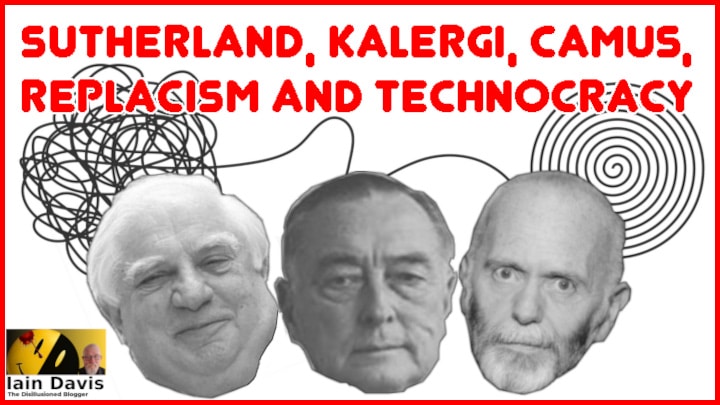
Conceptual Clarity in Dismantling Economic Jargon
It might seem like common sense to say that good ideas should be clear, but the notion that good ideas should be obscure and inaccessible to laymen has long been prevalent in academic circles. Murray Rothbard describes Keynes’s General Theory of Employment, Interest, and Money as, “not truly revolutionary at all but merely old and oft-refuted mercantilist and inflationist fallacies dressed up in shiny new garb, replete with newly constructed and largely incomprehensible jargon.” Rothbard remarks that, “Often, as in the case of both Ricardo and Keynes, the more obscure the content, the more successful the book, as younger scholars flock to it, becoming acolytes.”
Similarly, Hunter Lewis in his introduction to W.H. Hutt’s The Theory of Idle Resources describes Keynes’s work as “a potpourri of fallacies supported by obscurity, shifting definitions, and other rhetorical tricks.” Hutt set out to debunk the fallacies propounded by Keynes’s theory of employment, aiming to explain the relevant principles in a clear and accessible manner that would help people make better decisions when faced with some of the practical problems of unemployment. To this end, Hutt began by highlighting the importance of “conceptual clarity” in understanding economic and social problems.
Ayn Rand’s “stolen concept fallacy” also addresses the problem of using words and concepts in a sense detached from their logical antecedents or “genetic roots,” so that the use of the word or concept becomes meaningless and people brazenly contradict themselves. She gives the example of “people who scream that they need more gas and that the oil industry should be taxed out of existence.” Rand is critical of a general tendency to “take the end result of a long sequence of thought as the given and to regard it as ‘self-evident’ or as an irreducible primary, while negating its preconditions.” In her example, the paramount need for gas is taken as given, while the precondition—the folly of destroying the oil industry if one needs gas—is negated. A contemporary example is Kamala Harris’s plan to give first-time buyers $25,000 to help them purchase a home, where little attention is paid to the inevitable adverse effect on house prices and availability of homes to purchase.
The particular concept that concerned Hutt in his Theory of Idle Resources was Keynes’s reference to “full employment.” Hutt questioned what Keynes meant by “full employment” or the “idleness” of the unemployed. To use Lewis’s example, the question may be posed as follows:
Is it more productive for a highly trained but unemployed engineer to bag groceries for pay or to invest time without pay in looking for an engineering job? If he or she took the grocery bagging job, Keynes would presumably be satisfied; we would be closer to full employment.
In addressing that question, Hutt argues that much depends on what is meant by “full employment” in the first place. He argues that it would be rather meaningless to say that everyone must be fully employed, because whether any resource is “fully employed” is a relative concept:
Given some basic ideal, e.g., consumers’ sovereignty, any particular resource may be said to be “under-employed” or “idling” when that ideal would be better served by the transfer of resources from other uses to cooperate with it. It would be “fully employed” in that sense if there would be no advantage in attracting other resources to cooperate with it. But it might then be working very slowly (as compared, say, to its former working). Even if continuously employed, the resources would appear to be “idling”; and yet they would be fully employed in the only rational connotation we can suggest for “full,” i.e., as a synonym for “optimum.”…“full employment” is a relative conception. That is, a piece of indivisible equipment is fully employed when other resources cannot be usefully (e.g., from the standpoint of consumers’ sovereignty) diverted from other occupations to cooperate with it.
When the question is put that way, it becomes clear that any government promising to create “full employment” cannot possibly have enough knowledge of all the potentially productive uses or value of available labor to achieve that goal. Free markets are based on voluntary exchange and, despite what Keynes may have thought, there is no benevolent overlord ensuring that all resources are “fully employed.” Any government that confers this omniscient and omnipotent role upon itself is doomed to fail.
Politicians promising “full employment” often give the impression that everyone will have a well-paid job of their preference in which they can realize their full potential. Taking the example of the periodic labor unrest in France, a typical headline reads that,
French PM vows to help youth get jobs after protest…Employers would be forced to pay additional taxes on short-term contracts to encourage them to hire on long-term contracts instead. Another proposal is for new graduates of modest means to receive a four-month extension to their study grants to tide them over until they find work.
This example illustrates Lewis’s point about obfuscation—nobody thinks punishing employers with higher taxes will create more jobs. At best, it will make conditions superficially better for those who do manage to find work, but it is unlikely to help the rioting youths who are unable to find work at all for numerous reasons, including lack of relevant skills and qualifications. Further, extending study grants may be a boon to specific recipients of the grant, but does not itself produce the promised jobs for the rioting youths. The promise to “help youth get jobs” turned out to have no discernible connection to the government’s proposals.
In Hutt’s view, it is important for the implications of government interventions to be made clear to everyone, including those not schooled in economics: economic concepts “should be immediately comprehensible by the layman.” In the absence of conceptual clarity, voters are easily beguiled by false promises—which is precisely why economists whose job is “selling policies in return for power,” as Hutt put it, obfuscate the way they do.
Hutt recognizes that an inordinate focus on conceptual coherence and clarity of exposition risks rendering a discussion “pedantic and useless” if carried too far in economic and policy debates, but he highlights “the necessity for constant redefinition” in understanding the key conceptual foundations of economic principles. He points out that although such concerns may seem purely “theoretical,” conceptual clarity is by no means a theoretical matter when faced with government obfuscation about the magical outcomes they promise to produce with their ill-conceived economic interventions.
The lesson to draw from Hutt’s argument is that conceptual clarity is indispensable in understanding why state interventions are doomed to failure and why proposed solutions are likely only to exacerbate the problems they purport to resolve.
Originally Posted at https://mises.org/
Stay Updated with news.freeptomaineradio.com’s Daily Newsletter
Stay informed! Subscribe to our daily newsletter to receive updates on our latest blog posts directly in your inbox. Don’t let important information get buried by big tech.
Current subscribers:



